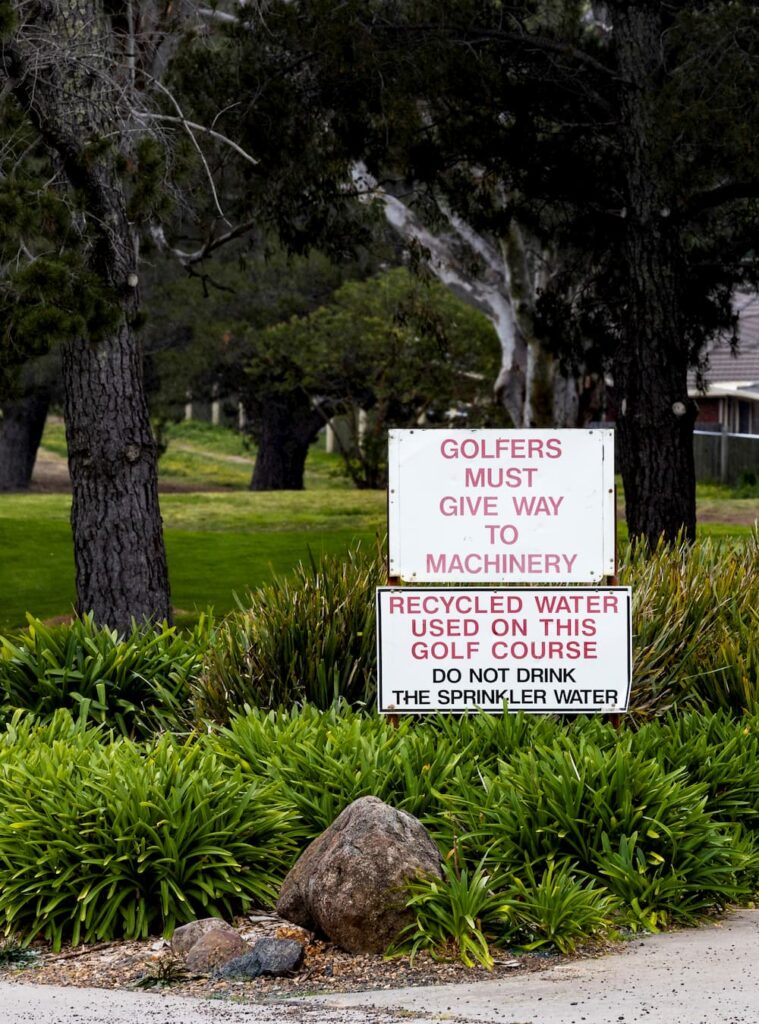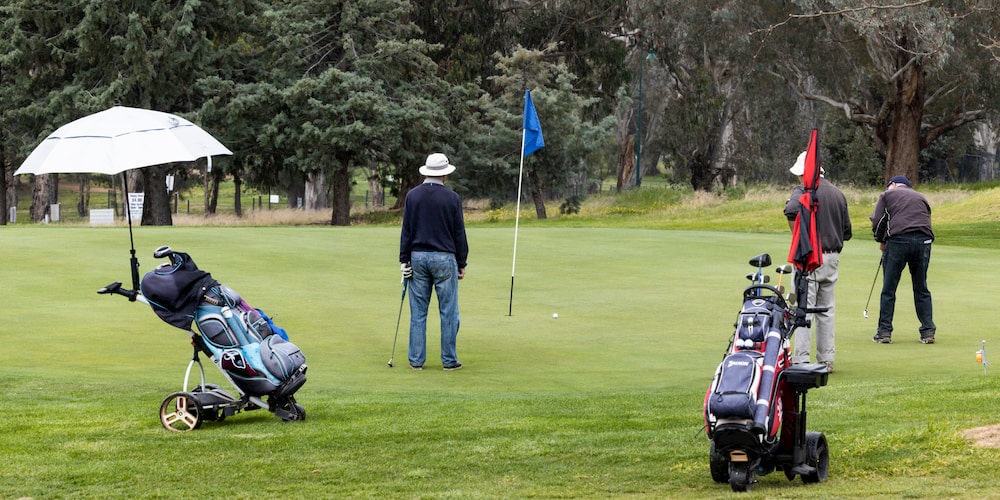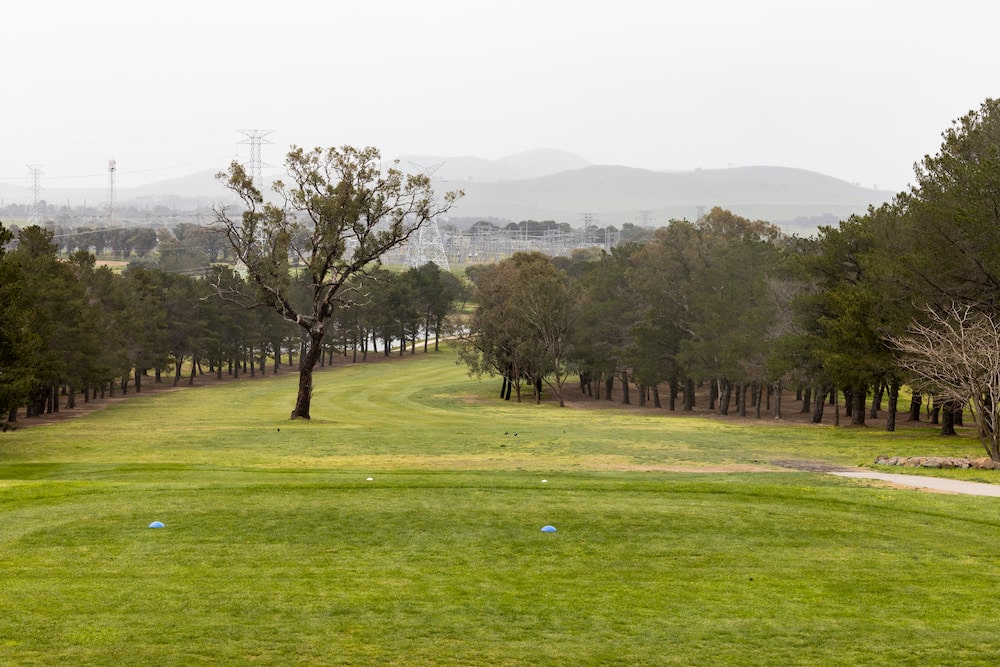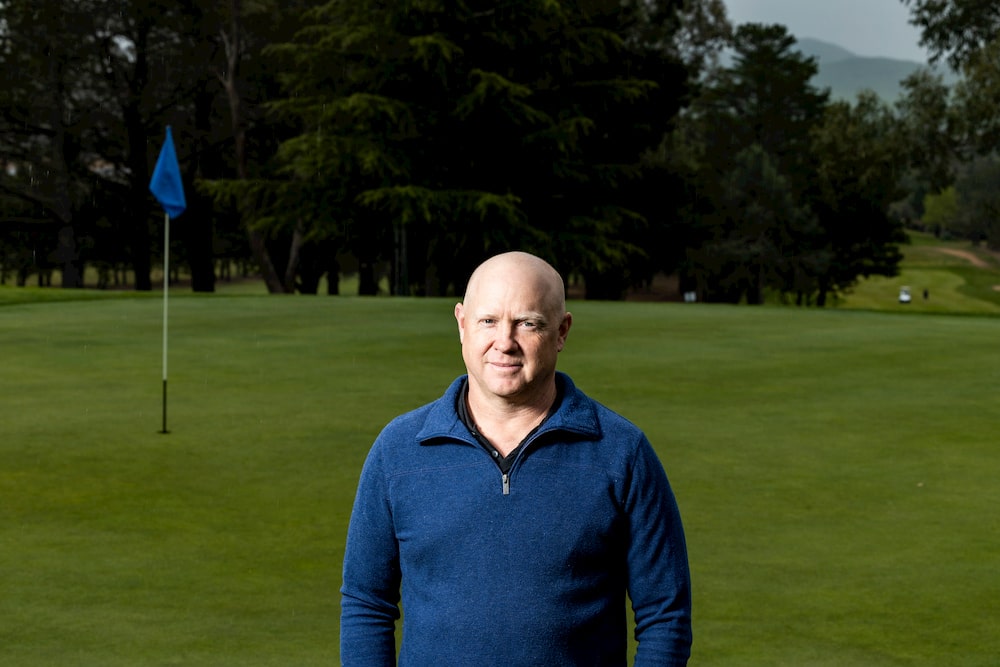Magpies Belconnen Golf Club general manager Paul Netting is struggling to see a future for the 40-year-old not-for-profit sports and social venue, with time running out for the ACT Government to complete a water review promised since 2016.
“The timeline is tight, we’re wanting firm answers and it’s been two months since the election,” he said.
A spokesperson from the Chief Minister’s office told Canberra Daily the review will commence in early 2021 and is expected to take between three to four months.

Upon hearing this timeline for the first time, Mr Netting said Magpies Belconnen Golf Club “won’t know the outcome of the review before our lease has to be extended”.
He said management must decide whether to renew the lease by 31 March 2021, ahead of its expiry in June, and he communicated these dates with the Chief Minister’s office before the election.
“All we are seeking is a fair go to keep the only golf course in Belconnen operating for its 100,000 residents, which also keeps 44 locals in employment and provides over 40,000 golf games per year.”
This wasn’t the first time the golf club felt let down by an ACT Labor election promise.
“The same thing happened in 2016; the Labor party made a promise in that election campaign to do a water review but unfortunately it never happened.”
In the lead up to the 2016 election, ACT Labor committed to: “Initiate a review of regulatory arrangements (including land and water rates) that impact on the ability of small and medium clubs to improve their operations and diversify their businesses.”
Four years later, concluding its 18th year in power, the political party again committed to conduct a review into water costs for high-intensity users of non-potable water, “notably golf clubs,” if it was re-elected in 2020.
“Unless Icon come back with suitable pricing it doesn’t give us any opportunity to continue.”
Mr Netting said club management were speaking directly with Icon Water CEO Ray Hezkial and CFO Joy Yau who were “taking our situation seriously”.
What’s the problem?
As previously reported, unlike other ACT golf courses using river or lake water, the Magpies Belconnen golf course uses recycled water for irrigation, otherwise known as treated effluent water.
And while the Independent Competition and Regulatory Commission (ICRC) set and regulate potable water prices in the ACT, Icon Water has control over the treated effluent water prices.
The cost of its non-potable water supply increased by 2,567% since 2006 – from 9 cents to $2.40 per kilolitre.
Mr Netting said the Golf Club was built in a location approved by the Government, on the basis that the course had a long-term and economically reasonable water supply.
“For over 30 years the pricing was viable; if it was ever known that the water supply costs would be increased so dramatically over the past decade to current levels, the course would never have been built.”
In comparison, golf clubs pumping out of ACT river and lake systems pay a Water Abstraction Charge (WAC) of 31.5 cents per kilolitre, which is then subsidised to around 10 cents per kilolitre through the Market Equity Scheme (MES) and other efficiency offsets.
Mr Netting said he proposed switching from the expensive recycled water to a cheaper river or lake supply during discussions with Icon Water.
“They said they don’t have a licence to pull water out of the river, which is an ACT Government issue.”
“They [Icon] should be trying to use the recycled water – we’re the only one left using treated effluent from the Lower Molonglo Water Quality Control Plant and what we use is about 1/400th of what they release into the river each year which flows downstream into NSW, at no cost.
“A winery a couple of kilometres down river on the NSW side of the border then buys that water from Water NSW.”
Mr Netting said Water NSW does not pay for or treat the water, and sell it for less than 1 cent per kilolitre plus a small licensing fee.

Hardship fund appreciated but water review urgent, club manager says
This year, the ACT Government established a hardship fund for community clubs financially impacted by the bushfires and pandemic.
It will allow clubs to apply for rebates on non-potable water costs and water abstraction charges incurred for 12 months, starting 1 October 2020.
The rebates will be capped at the usage level for the same period 12 months earlier.
In the announcement, ACT Labor wrote: “This measure will assist with water costs commencing from the summer period and also provide relief while the review occurs.”
Mr Netting said it was great clubs were getting temporary relief; however, the water review was the most pressing issue when it came to the club’s long-term viability.
A spokesperson from the Chief Minister’s office said the pending review will be led by the Minister for Business and Better Regulation, Tara Cheyne, in consultation with the relevant regulatory authorities.
“There is a case to be made for public subsidy of these activities on the grounds of encouraging physical activity, social interaction and community building,” the spokesperson said.
“Water is a scarce resource, and isn’t free to supply.
“The question that the Government has to consider is the appropriate extent of any public subsidy towards these expenses.”
An Icon Water spokesperson said they had been “in discussions with Magpies Golf Club for some time now, in an effort to come to an agreement with the club,” and prices were based on the costs to operate the business and provide services in a “prudent and efficient” manner.
“It is important to understand that if prices are lowered in one area, they must be recovered in another,” the spokesperson said.
“A primary pricing principle relates to social equity – one customer segment should not cover cost of a benefit received by others.
“We have provided a range of different options in consideration of the club’s circumstances that still ensure the agreement does not fall below the cost to supply. These discussions remain ongoing.”
Mr Netting argued the pricing of water across golf clubs in the ACT was not equitable.
He said the Club provided 30 hectares of green space in the ACT, and the use of recycled water from ACT sewerage was an environmentally friendly way to maintain the grounds.
“Using ACT recycled water in the ACT is good thing surely, and responsible.
“If we weren’t using it, it would be released into the river for use by NSW at no cost.”




